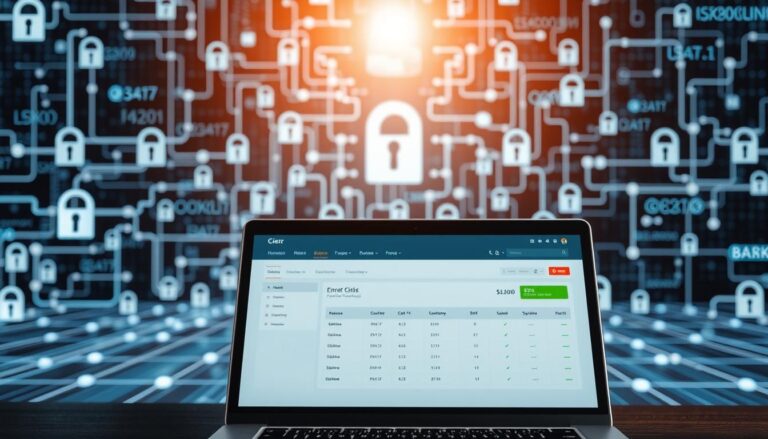How to Build Credit Score from Scratch: Expert Tips and Strategies
Building a credit score from scratch is possible. It requires careful planning and smart decisions. Your credit score is crucial for financial health and future opportunities. A strong credit score opens doors to loans, credit cards, and better interest rates. It can influence everything from renting an apartment to buying a car. Starting with zero credit might seem daunting, but it is achievable with the right steps.
Understanding the basics of credit and the factors that affect your score can empower you. It’s about responsible spending, timely payments, and strategic use of credit. Whether you’re just starting your financial journey or looking to improve your score, learning the essentials will pave the way for a stable financial future. Let’s explore how to build your credit score from the ground up.
Importance Of Credit Score
Building a credit score from scratch can seem overwhelming, but it is crucial for your financial health. A good credit score opens many doors and can save you money. Understanding the importance of a credit score will help you make informed decisions. Let’s explore why a credit score is so important.
Impact On Loans
Your credit score affects your ability to get loans. Lenders use it to decide if you are a good risk. A high score can help you get approved for loans easily. It can also get you better interest rates.
Here are some key points on how your credit score impacts loans:
- Loan Approval: Lenders look at your score to see if you are likely to repay the loan. A higher score means a higher chance of getting approved.
- Interest Rates: With a good credit score, you can get loans at lower interest rates. This can save you a lot of money over time.
- Loan Amounts: A strong credit score can help you qualify for larger loan amounts. This is important for big purchases like a home or car.
Consider this table to see how credit scores can affect loan interest rates:
| Credit Score Range | Interest Rate |
|---|---|
| 750-850 | 3.5% |
| 700-749 | 4.0% |
| 650-699 | 4.5% |
| 600-649 | 5.0% |
As you can see, a better credit score leads to lower interest rates. This can make a big difference in your monthly payments and the total cost of the loan.
Effect On Insurance Rates
Insurance companies also use your credit score. They believe that people with good credit scores are less likely to file claims. This means that a higher score can lower your insurance premiums.
Here are some ways your credit score affects insurance rates:
- Premium Costs: A good credit score can reduce the amount you pay for insurance. This includes auto, home, and even life insurance.
- Policy Approval: Some insurance companies might not offer you a policy if you have a low credit score.
- Coverage Options: With a higher score, you may have access to better coverage options and add-ons.
Consider this table to see how credit scores can affect auto insurance premiums:
| Credit Score Range | Annual Premium |
|---|---|
| 750-850 | $1,200 |
| 700-749 | $1,400 |
| 650-699 | $1,600 |
| 600-649 | $1,800 |
Maintaining a good credit score can save you a significant amount on insurance premiums. This is another reason why building a good credit score from scratch is so important.
Starting With Basics
Building a credit score from scratch can seem daunting. But starting with the basics can make the process easier. Understanding the fundamental steps will set you on the right path. Here’s how you can begin this important financial journey.
Checking Your Credit Report
To build a credit score, start by checking your credit report. This report gives you a snapshot of your financial history. It includes information like your loans, credit cards, and payment history. Knowing what’s on your report helps you understand where you stand.
Here’s how to check your credit report:
- Visit a reputable website like AnnualCreditReport.com.
- Request your free credit report from each of the three major credit bureaus: Equifax, Experian, and TransUnion.
- Review the reports carefully for any errors or discrepancies.
Errors can hurt your credit score. If you find any mistakes, dispute them with the credit bureau. Correcting errors can improve your score. Checking your credit report regularly keeps you informed and helps you track your progress.
Understanding Credit Utilization
Credit utilization is the amount of credit you use compared to your credit limit. This ratio is a key factor in your credit score. Keeping this ratio low is important. It shows that you are responsible with your credit.
Here’s how to manage your credit utilization:
- Keep your credit card balances low.
- Pay off your credit card balances in full each month.
- If you can’t pay in full, try to keep the balance below 30% of your credit limit.
For example, if your credit limit is $1,000, try to keep your balance below $300. This helps maintain a healthy credit utilization rate.
Consider this table for a clearer understanding:
| Credit Limit | Recommended Balance | Credit Utilization |
|---|---|---|
| $500 | <$150 | 30% |
| $1,000 | <$300 | 30% |
| $2,000 | <$600 | 30% |
Understanding and managing credit utilization is crucial. It can significantly impact your credit score. By following these simple steps, you can start building a strong credit foundation.
Building Credit History
Building a credit history from scratch can seem daunting. But it’s a crucial step for financial independence. A strong credit history helps in securing loans, renting apartments, and even landing certain jobs. Here’s a guide to help you understand how to start building your credit score.
Secured Credit Cards
Secured credit cards are a great way to start building credit. They require a security deposit, which acts as collateral. This deposit usually equals your credit limit. Here are some key points to consider:
- Security Deposit: The deposit reduces the risk for the card issuer. This makes it easier to get approved.
- Credit Limit: Typically, the credit limit is equal to the deposit. For example, a $300 deposit gives you a $300 credit limit.
- Monthly Payments: Use the card for small purchases. Pay off the balance each month to build positive credit history.
- Graduation to Unsecured Cards: After demonstrating responsible use, you may be able to upgrade to an unsecured card.
Here is a comparison table of some popular secured credit cards:
| Card Name | Deposit Amount | Annual Fee | Key Benefit |
|---|---|---|---|
| Capital One Secured | $200-$1,000 | $0 | Refundable deposit |
| Discover it Secured | $200-$2,500 | $0 | Cashback rewards |
| OpenSky Secured | $200-$3,000 | $35 | No credit check |
Credit Builder Loans
Credit builder loans are designed for people with no credit history. They help build credit by reporting your payments to credit bureaus. Here’s how they work:
- Loan Amount: Typically small, ranging from $300 to $1,000.
- Repayment Period: Usually 6 to 24 months.
- Payment Structure: You make monthly payments. These payments are reported to credit bureaus.
- Savings Component: At the end of the term, you get the loan amount back. This helps you save while building credit.
Here are some benefits of credit builder loans:
- Build Credit History: Regular payments help establish a positive credit record.
- Improve Credit Score: Consistent payments improve your credit score over time.
- Accessible: Easier to qualify for than traditional loans.
- Savings: Encourages saving money while improving credit.
Example institutions offering credit builder loans:
| Institution | Loan Amount | Repayment Period |
|---|---|---|
| Self | $300-$1,000 | 12-24 months |
| Credit Strong | $500-$2,000 | 12-24 months |
| MoneyLion | $500-$1,000 | 12 months |
Managing Payments
Building a credit score from scratch can feel overwhelming. One key aspect is managing payments. Properly handling payments can significantly impact your credit score. Keeping track of due dates and ensuring timely payments is crucial for a healthy credit profile. Here, we will discuss two critical elements: timely payments and setting up alerts.
Timely Payments
Timely payments play a huge role in building a strong credit score. They show lenders that you are reliable and responsible. Missing payments can harm your credit score significantly. Here are some tips to ensure your payments are always on time:
- Pay before the due date: Always aim to pay your bills a few days before the due date. This buffer helps avoid any unexpected delays.
- Use automatic payments: Setting up automatic payments through your bank ensures your bills are paid on time, every time.
- Prioritize high-interest debt: Pay off high-interest debt first to save money and improve your credit score faster.
- Monitor your accounts: Regularly check your account statements to ensure all payments are processed correctly.
| Payment Method | Advantages |
|---|---|
| Automatic Payments | Convenient, reduces risk of missed payments |
| Manual Payments | More control, ensures you have funds available |
Consistently making payments on time is essential. It builds trust with lenders and boosts your credit score over time.
Setting Up Alerts
Setting up alerts is a practical way to manage your payments. Alerts can remind you of upcoming due dates and help prevent missed payments. Here are some steps to set up effective payment alerts:
- Choose the right alert method: Decide whether you prefer email, SMS, or app notifications.
- Set up alerts with your bank: Most banks offer alert services. Log in to your online banking and set up reminders for payment due dates.
- Use budgeting apps: Many budgeting apps allow you to set up alerts for various bills and due dates.
Consider the following tips for effective alert management:
- Multiple reminders: Set multiple reminders (one week before, three days before, and on the due date).
- Customize alerts: Customize alerts for different types of bills and payments to avoid confusion.
- Review your alerts regularly: Ensure that your alert settings are up to date and adjust them as needed.
Alerts can be a powerful tool to help you stay on track with your payments. They reduce the risk of missed payments and contribute to a better credit score.
Monitoring Your Progress
Building a credit score from scratch can seem daunting. One of the key steps is monitoring your progress. Knowing where you stand helps you make informed decisions. Regular monitoring keeps you on track and helps you spot any issues early. This section will explore effective ways to keep an eye on your credit journey.
Using Credit Monitoring Tools
Credit monitoring tools are essential. They keep you informed about changes in your credit report. Many services offer these tools, and some are even free. They alert you to new accounts, hard inquiries, and any suspicious activity. This is crucial for protecting your credit and identity.
Here are some features you should look for in credit monitoring tools:
- Real-time alerts: Get notified immediately about significant changes.
- Credit score updates: See how your actions affect your score.
- Identity theft protection: Monitor for any unusual activities.
Consider using a table to compare different credit monitoring tools:
| Tool | Cost | Features |
|---|---|---|
| Credit Karma | Free | Score updates, alerts, reports |
| Experian | $19.99/month | Alerts, reports, identity protection |
| Identity Guard | $8.99/month | Alerts, identity protection, score updates |
Choose a tool that fits your needs. Regular monitoring helps you stay aware of your credit status. It also helps you respond quickly to any problems.
Reviewing Your Credit Report Regularly
Another crucial step is reviewing your credit report regularly. You can get a free report from each of the three major credit bureaus once a year. These reports contain detailed information about your credit history. Checking them ensures there are no errors that could harm your score.
Here’s how to review your credit report effectively:
- Get your reports: Visit AnnualCreditReport.com to get your free reports.
- Check personal information: Ensure your name, address, and other details are correct.
- Review credit accounts: Verify that all listed accounts are yours.
- Look for errors: Dispute any inaccuracies with the credit bureau.
- Check for signs of fraud: Look for accounts you didn’t open.
Here’s a quick table to summarize what to check:
| Item | Details to Check |
|---|---|
| Personal Information | Name, address, social security number |
| Credit Accounts | Account names, balances, payment history |
| Credit Inquiries | Ensure listed inquiries were made by you |
Reviewing your report helps you catch errors and unauthorized activity. This keeps your credit score accurate and reflects your true financial behavior.
Frequently Asked Questions
What Is The Fastest Way To Build Credit From Scratch?
Open a secured credit card. Make small purchases and pay off the balance monthly. Consider a credit-builder loan. Use a co-signer if possible.
How Long Does It Take To Build A 700 Credit Score From Scratch?
Building a 700 credit score from scratch typically takes about six months to two years. Timely payments and low credit utilization help speed up the process.
How To Get A 700 Credit Score In 30 Days?
To achieve a 700 credit score in 30 days, pay bills on time, reduce credit card balances, avoid new credit inquiries, dispute errors on your credit report, and keep old accounts open.
What Credit Score Does An 18 Year Old Start With?
An 18-year-old typically starts with no credit score. Credit scores develop after establishing a credit history through borrowing and repaying.
How Can I Start Building Credit?
Get a secured credit card. Pay bills on time. Keep balances low.
Conclusion
Building a credit score from scratch takes patience and consistent effort. Pay bills on time. Keep credit card balances low. Open a secured credit card if needed. Check your credit report regularly for errors. Avoid applying for too many new accounts at once.
Small steps can make a big difference. Stay committed to your financial goals. Gradually, your credit score will improve. Remember, good credit opens doors to better financial opportunities. Stay disciplined and informed. Your efforts will pay off.






